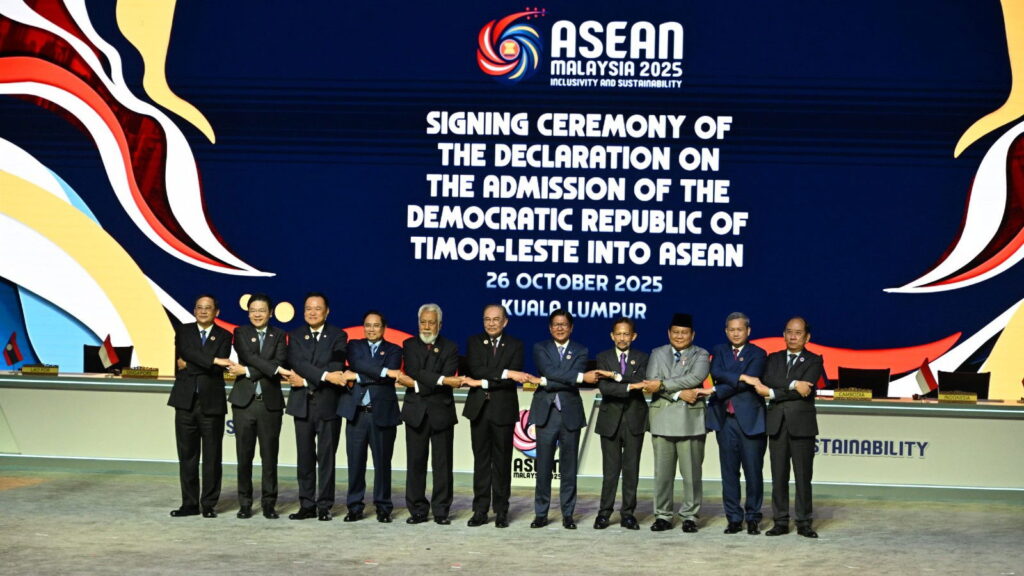Timor-Leste joins ASEAN as 11th member: What this means for the country and the bloc
Summary
Timor-Leste officially became the 11th member of the Association of Southeast Asian Nations (ASEAN) after signing the Declaration of Accession at the 47th ASEAN Summit in Kuala Lumpur on 26 October. The accession caps years of reforms, capacity-building and diplomatic engagement led by Timorese authorities with significant technical support from the International Trade Centre (ITC) under an EU-funded project. The project helped prepare Timor-Leste’s initial offers to join ASEAN economic agreements (goods, services and investment), trained public institutions and raised public awareness in Tetum, Portuguese and English.
Prime Minister Xanana Gusmão described the membership as a long-held dream realised and a new chapter for sustainable development. ASEAN Chair Prime Minister Anwar Ibrahim called the accession the completion of the ASEAN family. Global partners including the US, Singapore and Australia congratulated Timor-Leste and pledged continued cooperation and support as the country implements ASEAN obligations and deepens reforms.
Key Points
- Timor-Leste signed the Declaration of Accession at the 47th ASEAN Summit (Kuala Lumpur) on 26 October and is now the 11th ASEAN member.
- The accession follows years of domestic reform, institutional strengthening and regional engagement.
- The EU-funded ITC project provided technical assistance: capacity-building, negotiation support and preparation of offers for ATIGA (goods), AFAS/ATISA (services) and ACIA (investment).
- Public outreach materials and parliamentary briefings were produced in Tetum, Portuguese and English to ensure national institutions and citizens understand ASEAN frameworks.
- Targeted support was given to ministries and MSMEs to prepare for the opportunities and competition arising from membership.
- International partners (US, Singapore, Australia and the EU) publicly welcomed the accession and pledged ongoing support during implementation.
- Timor-Leste’s membership opens new avenues for trade, investment, connectivity and regional cooperation but requires continued legal, governance and economic reforms to fully benefit.
Context and relevance
Timor-Leste joining ASEAN is a major geopolitical and economic development in Southeast Asia. For the country it means formal access to a large regional market, potential investment and technical cooperation — but also obligations to align laws, standards and commitments across trade, services and investment. For ASEAN, accession reinforces the bloc’s inclusiveness and regional cohesion while adding a new partner with specific development needs.
This matters for businesses, policymakers and civil society: trade and investment flows could shift, development assistance and capacity-building will intensify, and regional labour and economic integration discussions will now include Timor-Leste’s priorities. The accession also highlights the role of international partners (EU/ITC, Australia, US, Singapore) in smoothing integration for newer or smaller members.
Why should I read this?
Quick and simple: this is a big regional change. If you work on ASEAN policy, trade, HR mobility, investment or regional strategy, Timor-Leste’s membership will affect rules, market access and who’s at the table. If you don’t, skim the key points — we saved you the detail.
